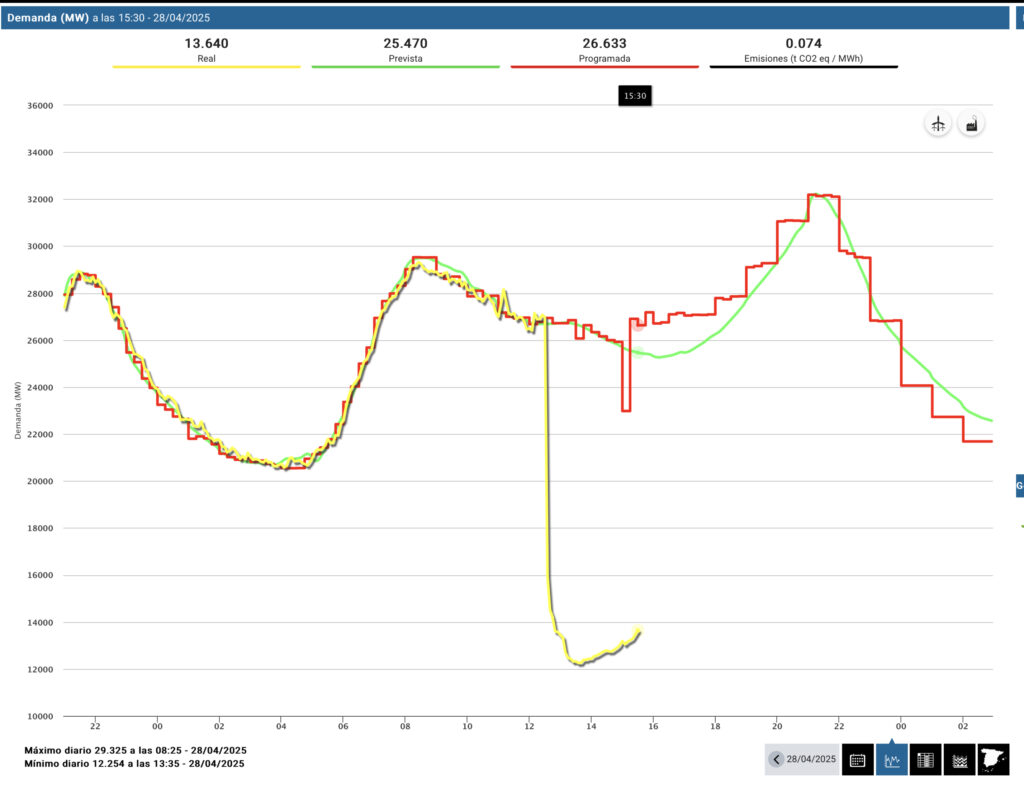Spanish blackout report: Power plants meant to stabilize voltage didn’t
The blackout that took down the Iberian grid serving Spain and Portugal in April was the result of a number of smaller interacting problems, according to an investigation by the Spanish government. The report concludes that several steps meant to address a small instability made matters worse, eventually leading to a self-reinforcing cascade where high voltages caused power plants to drop off the grid, thereby increasing the voltage further. Critically, the report suggests that the Spanish grid operator had an unusually low number of plants on call to stabilize matters, and some of the ones it did have responded poorly.
The full report will be available later today; however, the government released a summary ahead of its release. The document includes a timeline of the events that triggered the blackout, as well as an analysis of why grid management failed to keep it in check. It also notes that a parallel investigation checked for indications of a cyberattack and found none.
Oscillations and a cascade
The document notes that for several days prior to the blackout, the Iberian grid had been experiencing voltage fluctuations—products of a mismatch between supply and demand—that had been managed without incident. These continued through the morning of April 28 until shortly after noon, when an unusual frequency oscillation occurred. This oscillation has been traced back to a single facility on the grid, but the report doesn’t identify it or even indicate its type, simply referring to it as an “instalación.”
The grid operators responded in a way that suppressed the oscillations but increased the voltages on the grid. About 15 minutes later, a weakened version of this oscillation occurred again, followed shortly thereafter by oscillations at a different frequency, this one with properties that are commonly seen on European grids. That prompted the grid operators to take corrective steps again, which increased the voltages on the grid.
The Iberian grid is capable of handling this sort of thing. But the grid operator only scheduled 10 power plants to handle voltage regulation on the 28th, which the report notes is the lowest total it had committed to in all of 2025 up to that point. The report found that a number of those plants failed to respond properly to the grid operators, and a few even responded in a way that contributed to the surging voltages.
Spanish blackout report: Power plants meant to stabilize voltage didn’t Read More »


